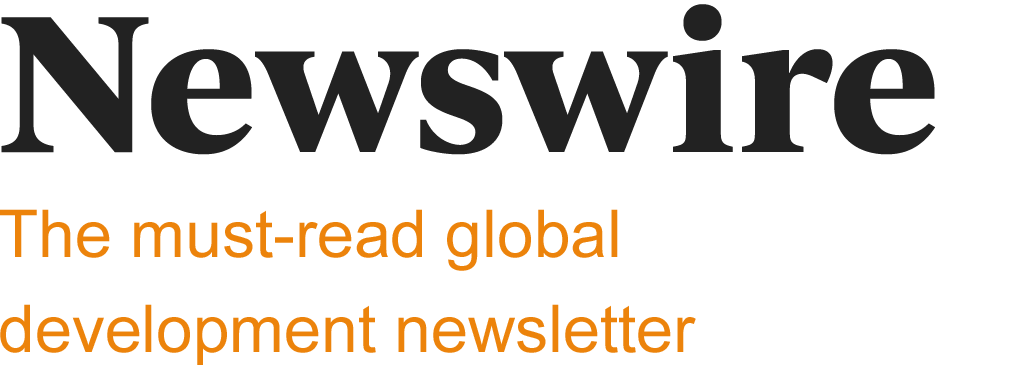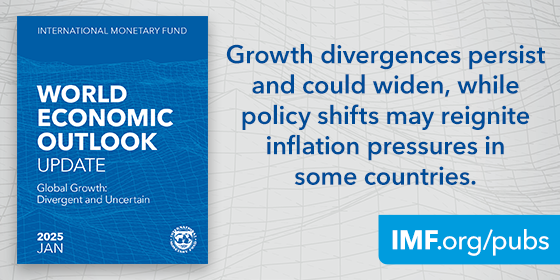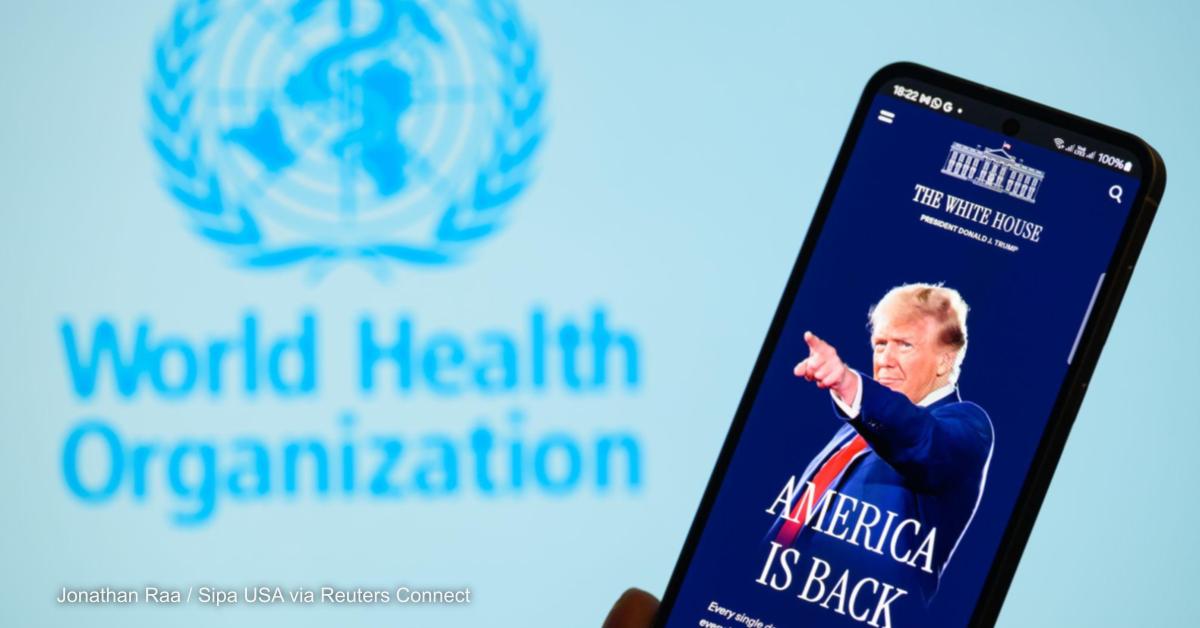|
A deep freeze in Geneva — and it ain’t the weather.
|
|
|
|
USAID just had dozens of its senior executives literally shown the door. How much more can the agency take before it buckles? Also in today’s edition: You asked, we answered — in a Devex Pro event on the U.S. foreign aid freeze and what you can do to weather it. 
|
|
Headed for the exits?
The Trump administration is not giving USAID an ounce of reprieve. Yesterday, nearly 60 senior executives at the agency were placed on administrative leave, along with select senior foreign service officers, deputy assistant administrators, and eight of USAID’s general counsel, including both ethics attorneys.
“We have identified several actions within USAID that appear to be designed to circumvent the President’s Executive Orders and the mandate from the American people,” Jason Gray, the agency’s acting administrator, wrote in an email seen exclusively by Devex. “As a result, we have placed a number of USAID employees on administrative leave with full pay and benefits until further notice while we complete our analysis of these actions.” Several of those staff members were forced to leave the USAID building immediately, two sources tell us. The stunning move comes on the heels of U.S. President Donald Trump’s immediate pause on new foreign aid spending and his stop-work order for existing grants and contracts. Now, it seems the agency’s leadership is next in line — some of whom have over 20 years of experience, my colleagues Elissa Miolene and Adva Saldinger write. “The aggregation of these actions seem to lead to no longer having a USAID,” warns Marcia Wong, the former deputy assistant administrator for USAID’s Bureau for Humanitarian Assistance. Read: Senior USAID officials put on leave amid fallout from executive order |
|
This isn’t a game
The one thing that’s certain about Trump’s sweeping halt on U.S. foreign assistance is that nothing is certain. We’ve been flooded with questions on what in the world is going on, so for a recent Devex Pro event we brought in a panel of experts to offer insights on what organizations can do to ride out the storm.
Everyone agreed on one thing: The current process is a mess of uncertainty and confusion. “This is going to change every day,” said Susan Reichle, a retired senior foreign service officer at USAID. “Every single day, they're issuing guidance to correct something that maybe wasn't correct in the initial guidance. And they're just starting the waiver process.” Those waivers will determine who gets to be exempt from the foreign assistance freeze — and you can be darn sure everyone will be fighting to get one, so be prepared to make your case. Panelists said there’s a lot people can do in this time of limbo, including maintaining a paper trail of communications with USAID to bolster any potential future legal arguments. Another tip is to contact members of Congress — specifically Republicans — to explain both the harmful effects of the freeze and the value of foreign assistance to Trump’s “America First” agenda. And be mindful of money to help tide you over these next three months while the review is taking place. Of course, not everyone has the luxury of having that much cash on hand. Panelists admitted there will be casualties — especially the smaller local organizations that ironically many conservatives say they want to support. “The whole localization agenda, I think, is, I don't want to say it's past tense, but they're going to feel it immediately,” Wong said. “This is a game-changing moment, what the U.S. has done.” Read: 'Game-changing moment' in US foreign aid throws everything into doubt |
|
Drip, drip, drip
Wong also lamented “the lack of guidance and the raindrop of little emails coming out of the [USAID] front office.” Some additional guidance did begin trickling in over the weekend though.
My colleague Sara Jerving obtained two orders sent to implementing partners in two African countries. They directed the organizations to immediately “stop, cease, and/or suspend any work” performed under the USAID funding agreement. This includes, but is not limited to, “a contract, task order, grant, cooperative agreement, or other acquisition or assistance instrument.” It’s left befuddled organizations scrambling for answers — and nervous about what those answers might be. Karl Goodsell, CEO of Positive Change for Marine Life, tells Sara that he and his team are “very anxious about what the future holds.” “If this Stop Work Order goes ahead, the impact will be catastrophic for countless people, organisations and governments who rely on USAID to deliver life-changing work,” he says. |
|
Sponsored by the Global Health Advocacy Incubator
8 steps to amplify your health advocacy impact
Effective communication is the heart of successful advocacy. Devex takes a look at GHAI's eight-step guide to stronger advocacy communications in health care. |
|
WHO knows
The deep freeze is being felt all the way in Geneva, where the World Health Organization is already grappling with the effects of Trump’s decision to withdraw the U.S. from the U.N. health agency. Critics have decried the move as shortsighted, saying it could endanger global health efforts and, conversely, endanger the U.S. if a pandemic breaks out and it can’t access WHO information.
The departure has compounded the organization’s existing financial struggles, my colleague Jenny Lei Ravelo reports. She saw an email to staff in which WHO Director-General Tedros Adhanom Ghebreyesus said the U.S. announcement has made the agency’s financial situation “more acute.” In response, WHO is taking a raft of measures to save money. That includes freezing recruitment “except in the most critical areas”; “significantly reducing travel expenditure”; and identifying what activities to prioritize given the “reduced financial envelope.” That’s not all. Meetings will now be virtual by default and even the replacement of IT equipment will be limited. Tedros said WHO will continue to rely on its member states’ support “while continuing to look for new sources of financing,” including through the WHO Foundation, which brings together various donors such as the private sector and the general public. Read: WHO goes on hiring freeze amid increasingly 'acute' funding situation Background reading: The foundation bringing in private sector finance to WHO |
|
Adding it up
Since news of the bombshell stop-work order dropped, one of the main questions that’s popped into most people’s heads is: How much will it cost to go three months without pay?
It’s not clear exactly how much money the sector is likely to lose out on, my colleague David Ainsworth tells me — but definitely several billion dollars. USAID spent a little over $30 billion through acquisition and assistance in the last year, so basic arithmetic suggests that if the agency paused all funding for a quarter of a year, the cost would likely be around $7.5 billion. In reality, it's both better and worse than that. For one thing, it’s not just USAID that’s affected. There’s also significant funding from other agencies and departments, including the State Department, although exactly how much is hard to quantify. At USAID itself, some money will continue flowing — several billion a year gets spent on emergency food assistance, which won't be stopped, according to reports, though what exactly counts as “emergency food assistance” is still being hashed out. There are various other carve-outs, and USAID staff are no doubt furiously lobbying to get a waiver for their key programs. And if programs are approved, once the administration has conducted a review, allocated spending could just be pushed to later in the year, rather than being stopped altogether. So the direct loss is likely to be less than the full $7.5 billion. However, it's not just the direct cost. There's the possibility that awardees might not get paid for work already done, or that they may lose out on the significant sums spent bidding for work that might now never take place. For many USAID contractors, it's going to be ruinously difficult to sustain themselves and their staff with such little certainty of income — because, of course, there is no guarantee that programs will restart again at the end of the current stop-work period. |
|
A message from Avanade
AI Value Report 2025: The gap between expectation and reality in the nonprofit sector
Avanade’s new AI Value Report reveals that nonprofit organizations have high hopes for their ROI on AI spending despite hard questions about people, data, and tech. Insights from 380 senior leaders signal five key takeaways: the needs of beneficiaries come first; nonprofits are laser-focused on donor engagement; budgetary constraints aren’t dampening appetite for AI investment; there is a desire for AI to support their missions and field staff members; and the need for a responsible AI model is profound. Read the Avanade AI Value Report now to learn more about how nonprofits are seeking value from AI. |
|
In other news
New Zealand is reassessing aid to climate-vulnerable Kiribati after a diplomatic snub. [The Washington Post] The World Bank warned Colombian staffers to avoid U.S. travel after Trump imposed a travel ban following Bogotá’s rejection of U.S. military flights returning deported immigrants. [The New York Times] The head of the World Food Programme in Afghanistan warned aid cuts and a U.S. funding freeze have left the agency able to feed only half of those in need, with millions of people surviving on just bread and tea. [Reuters] 
|
|
Thank you for reading today’s Newswire, edited by Fiona Zublin, copy edited by Nicole Tablizo, and produced by Patricia Esguerra. Have a news tip? Email [email protected].
Forwarded by a friend?
Sign up here to receive the Newswire directly.
|
|
Devex thanks our partners for supporting our newsletters.
Our editorial content remains independent. Interested in partnering with us? Get in touch. |
|
Connect with us:
|







